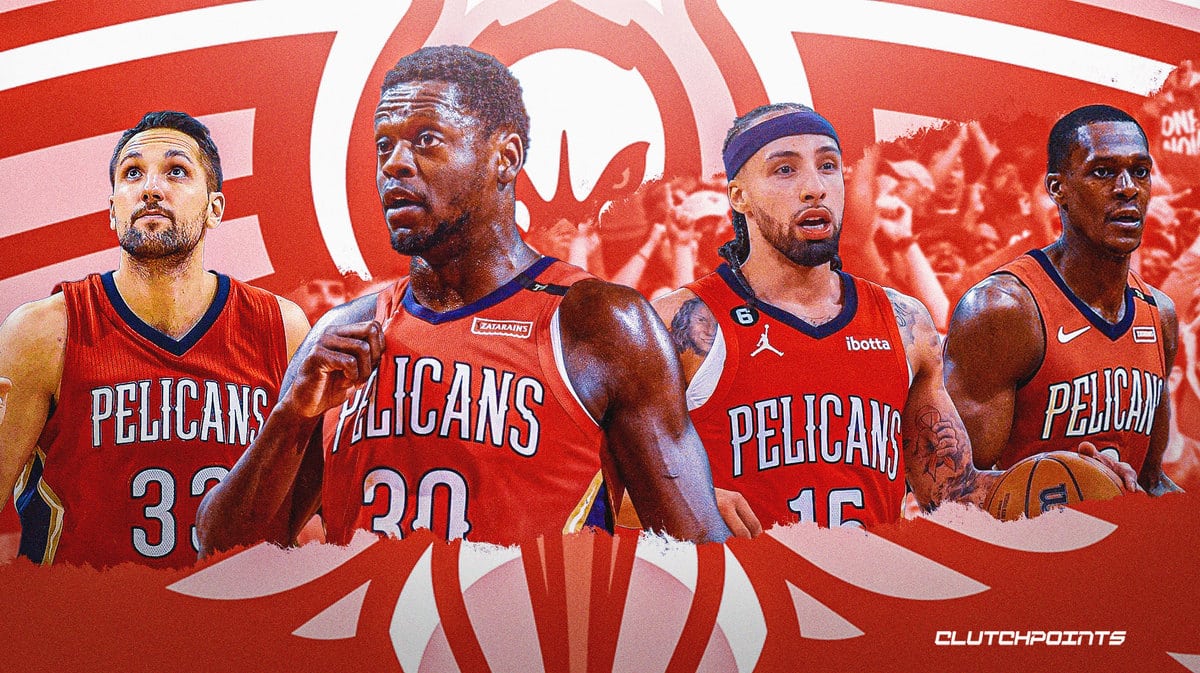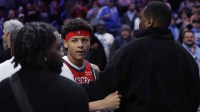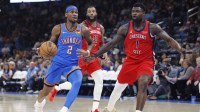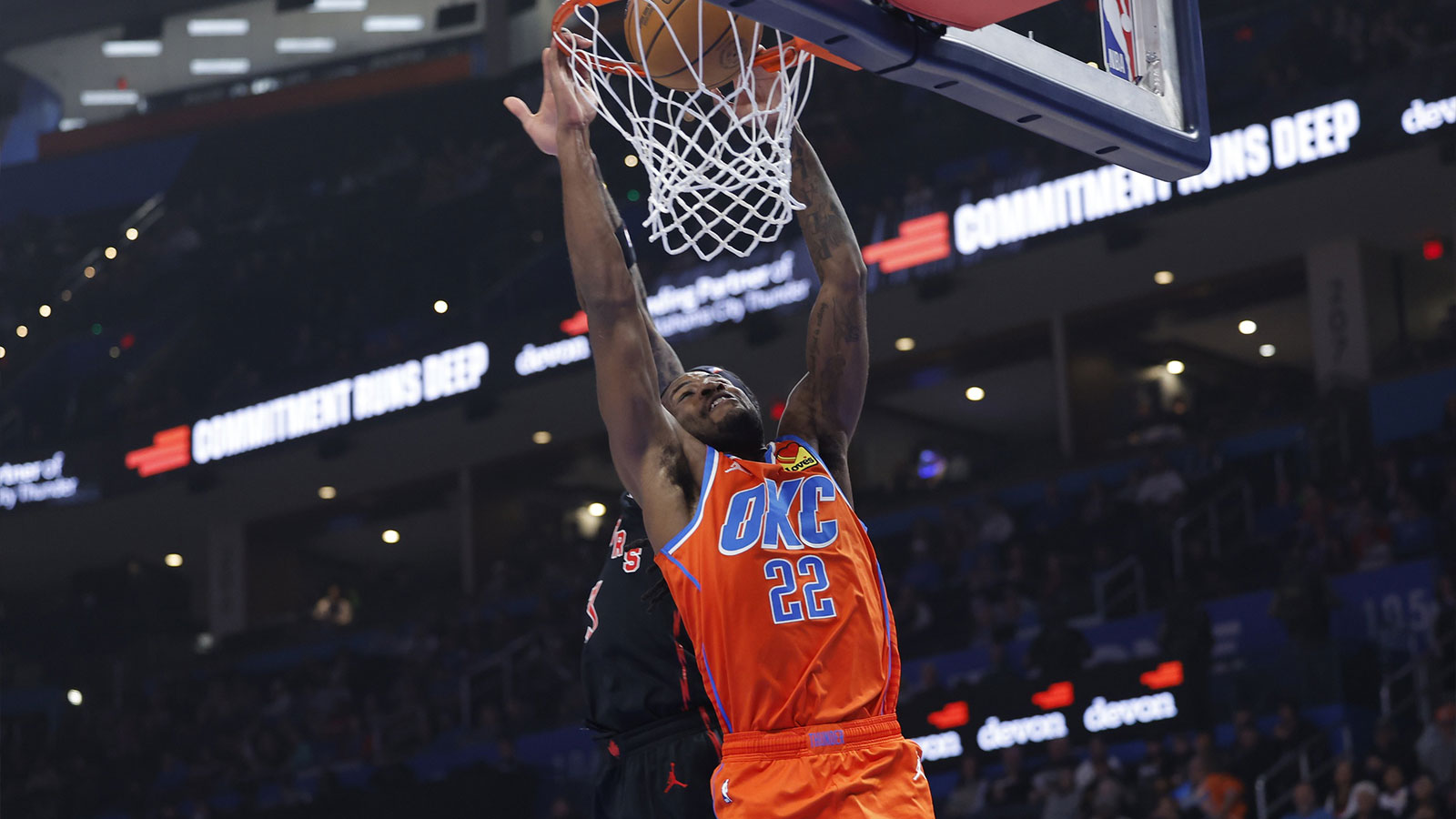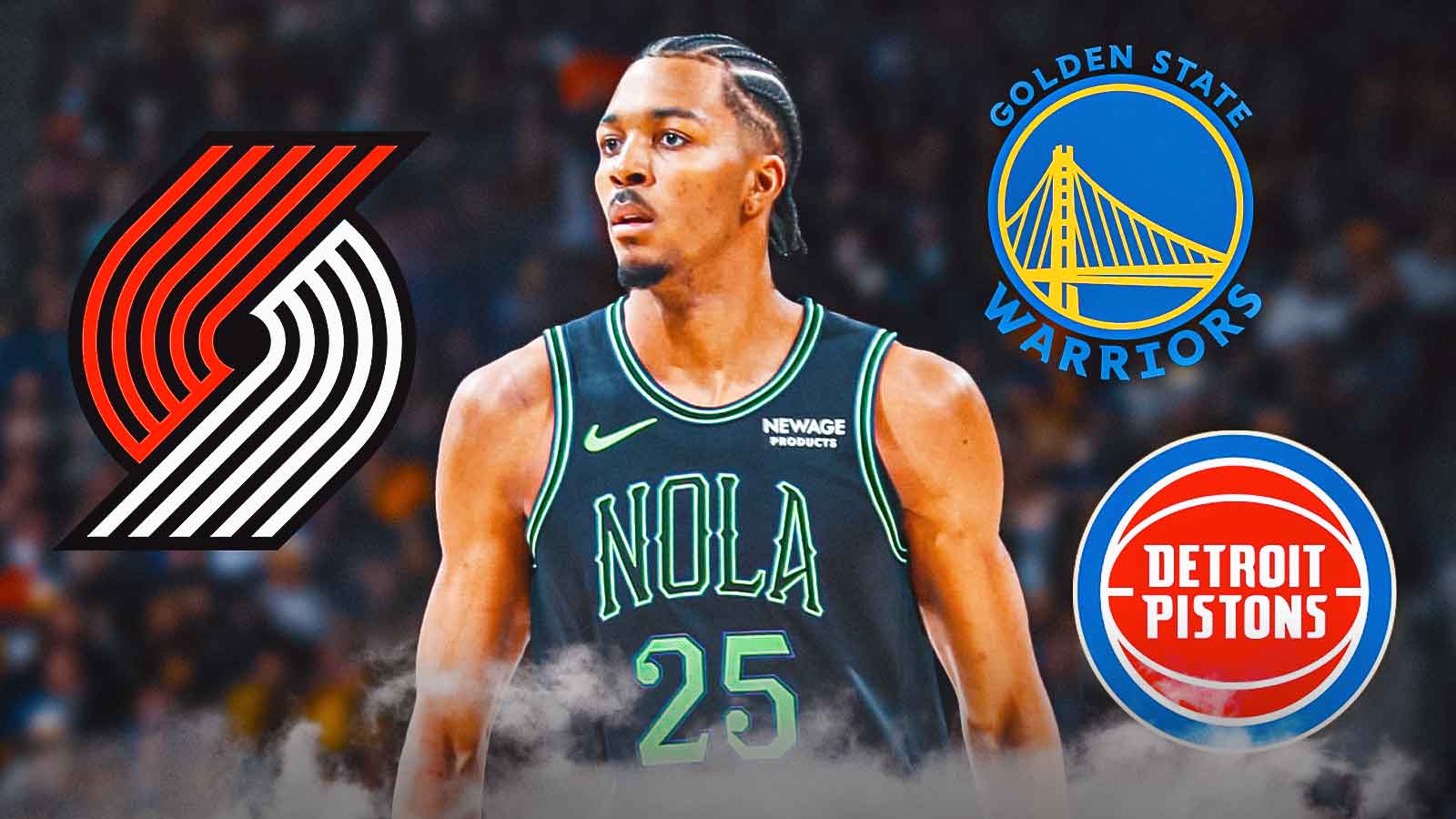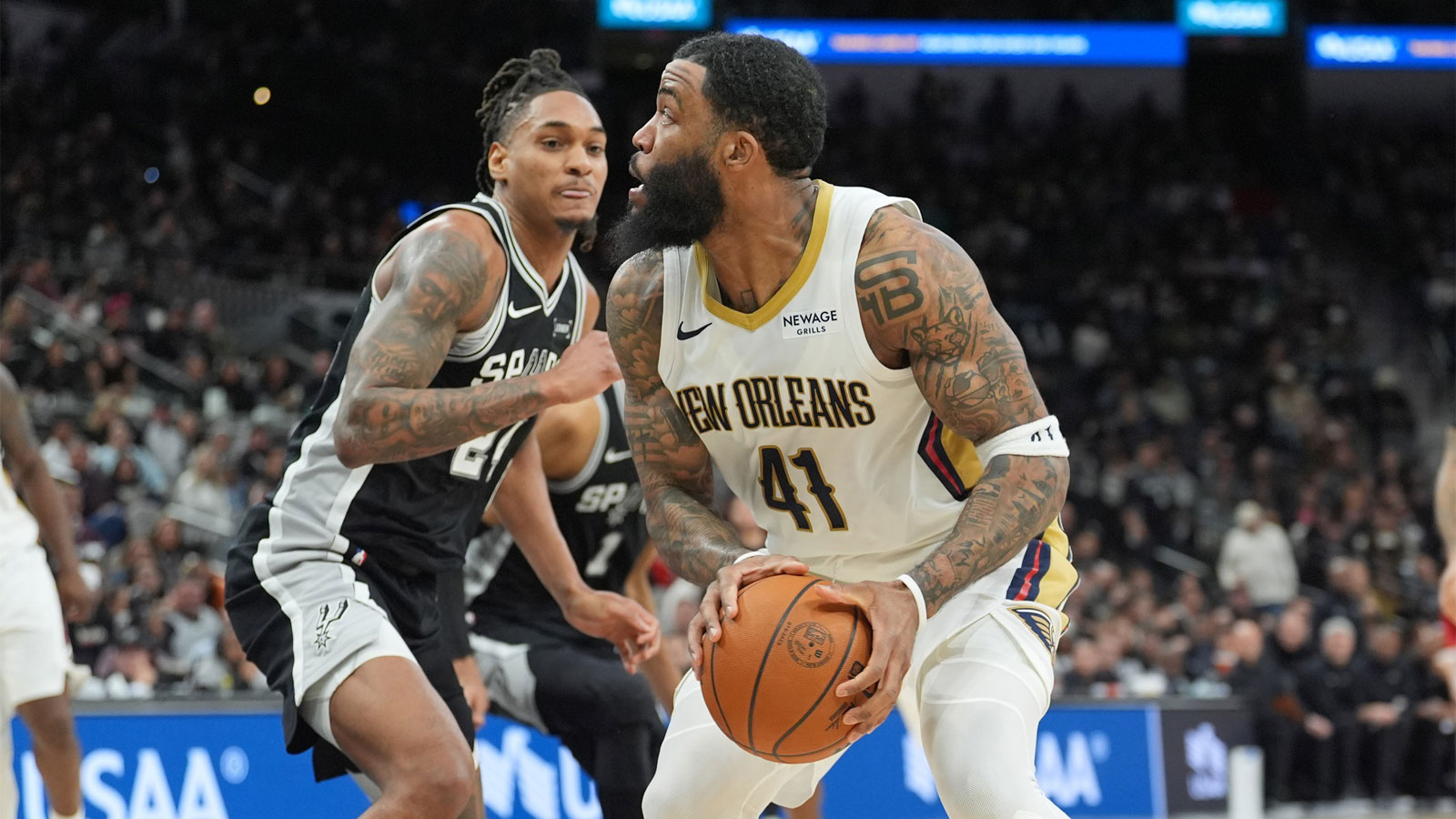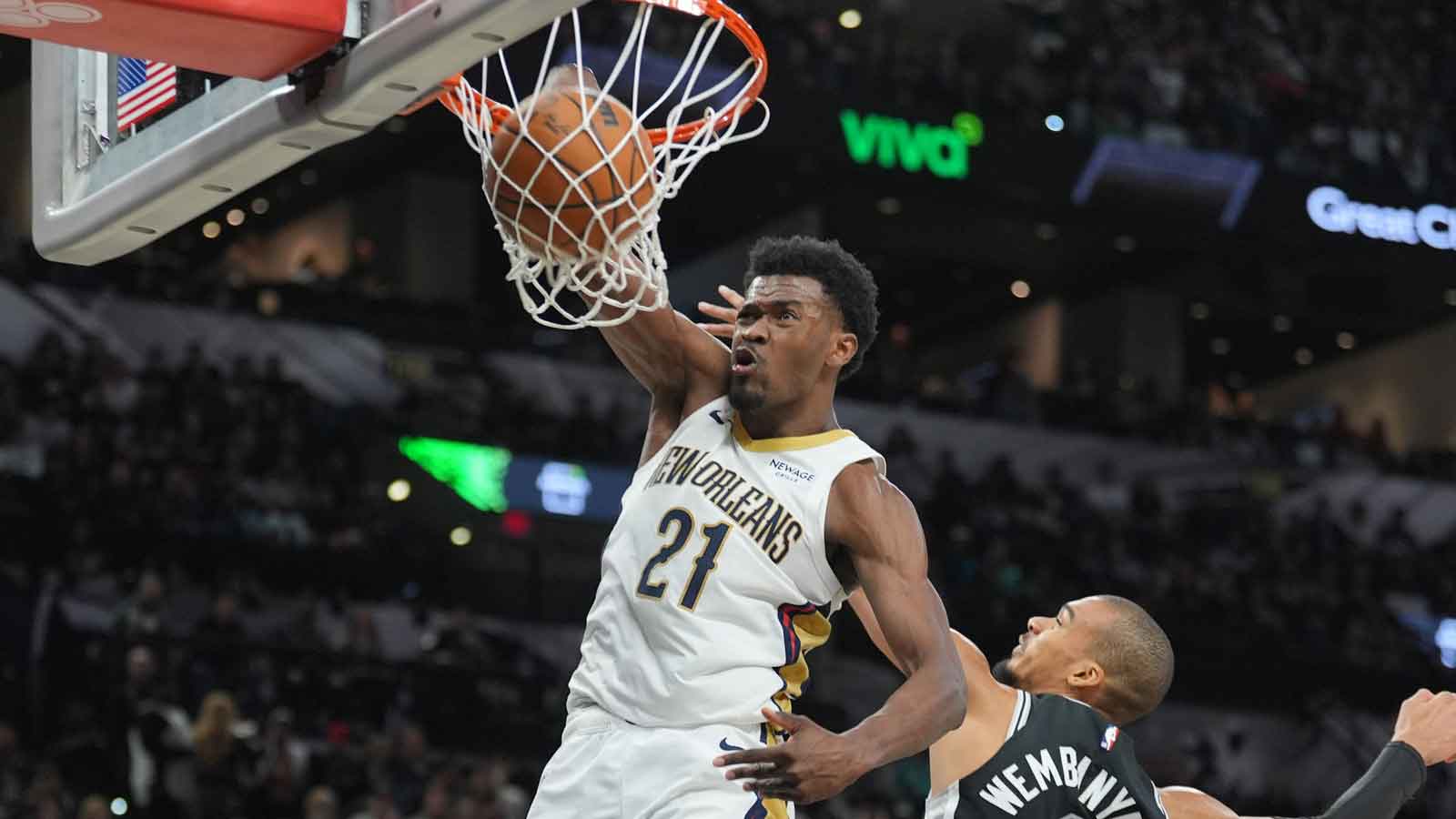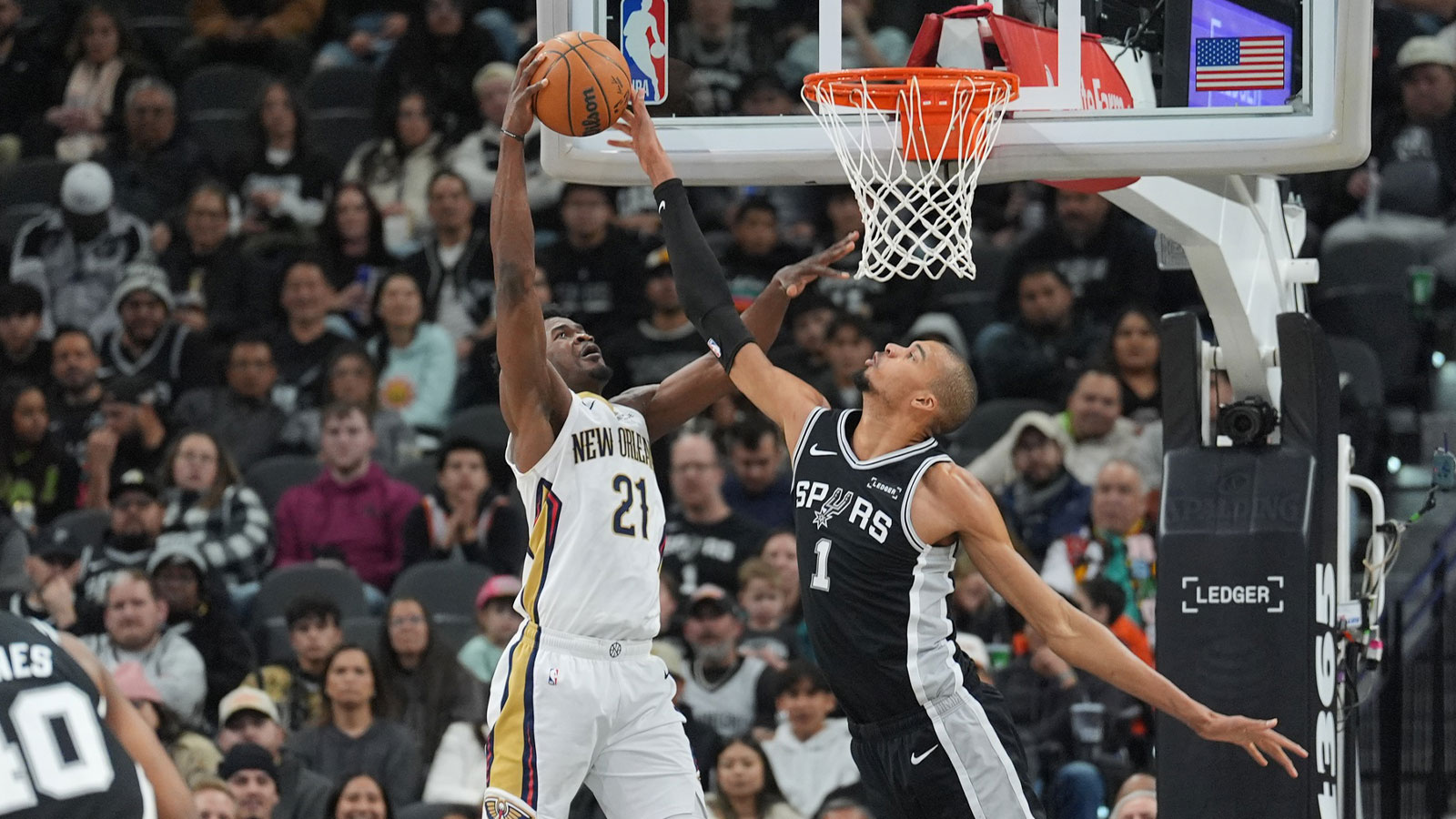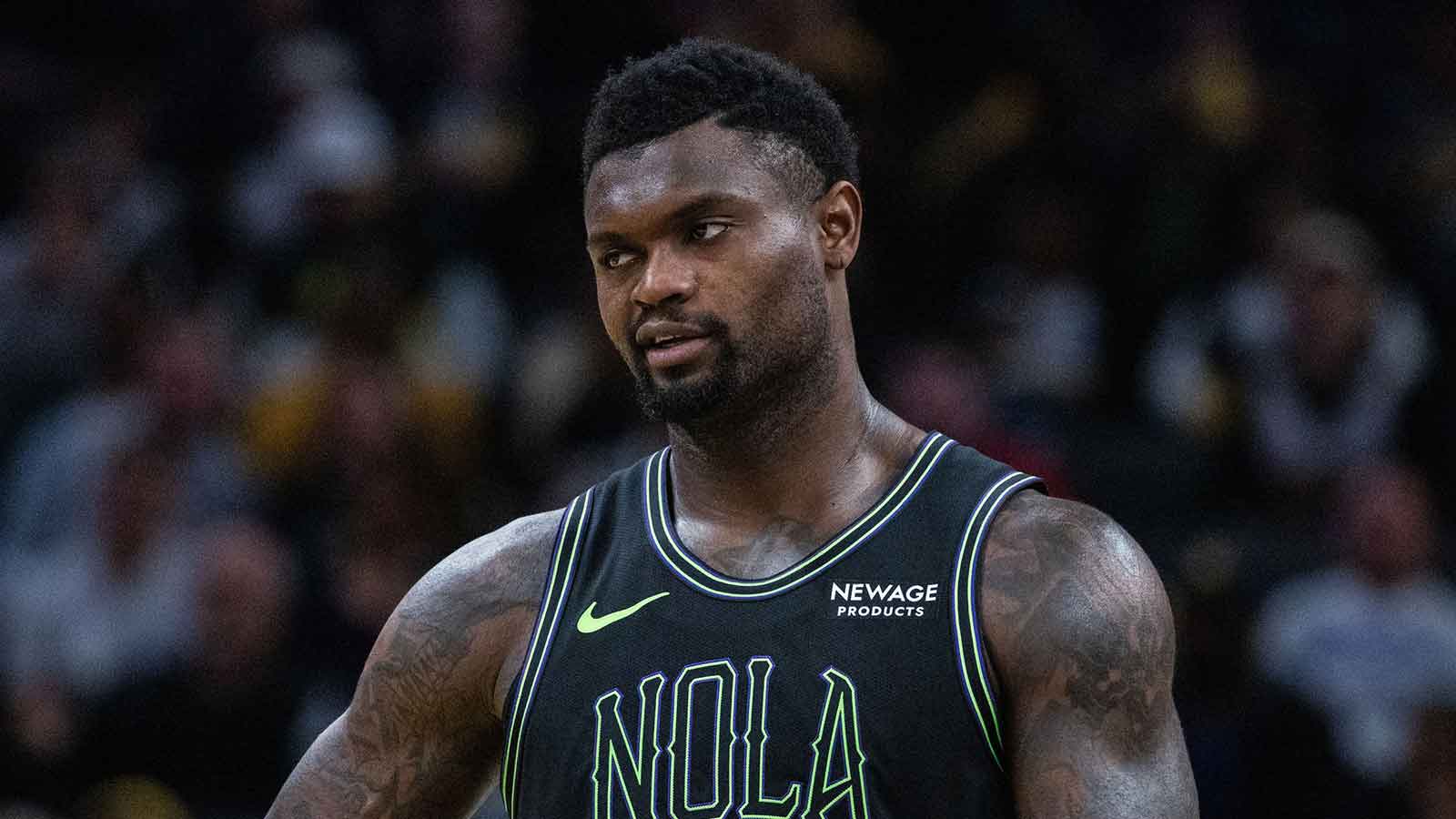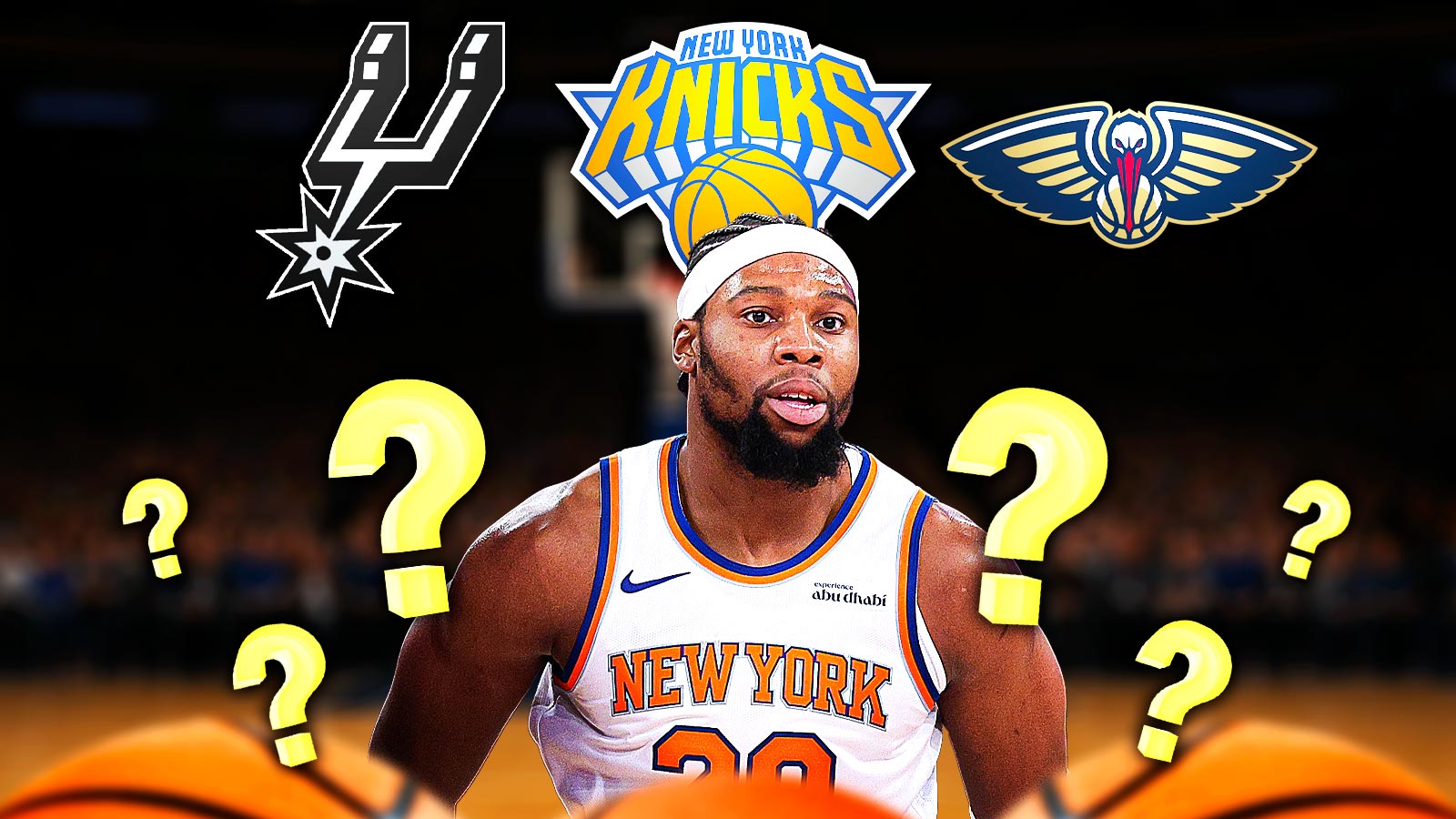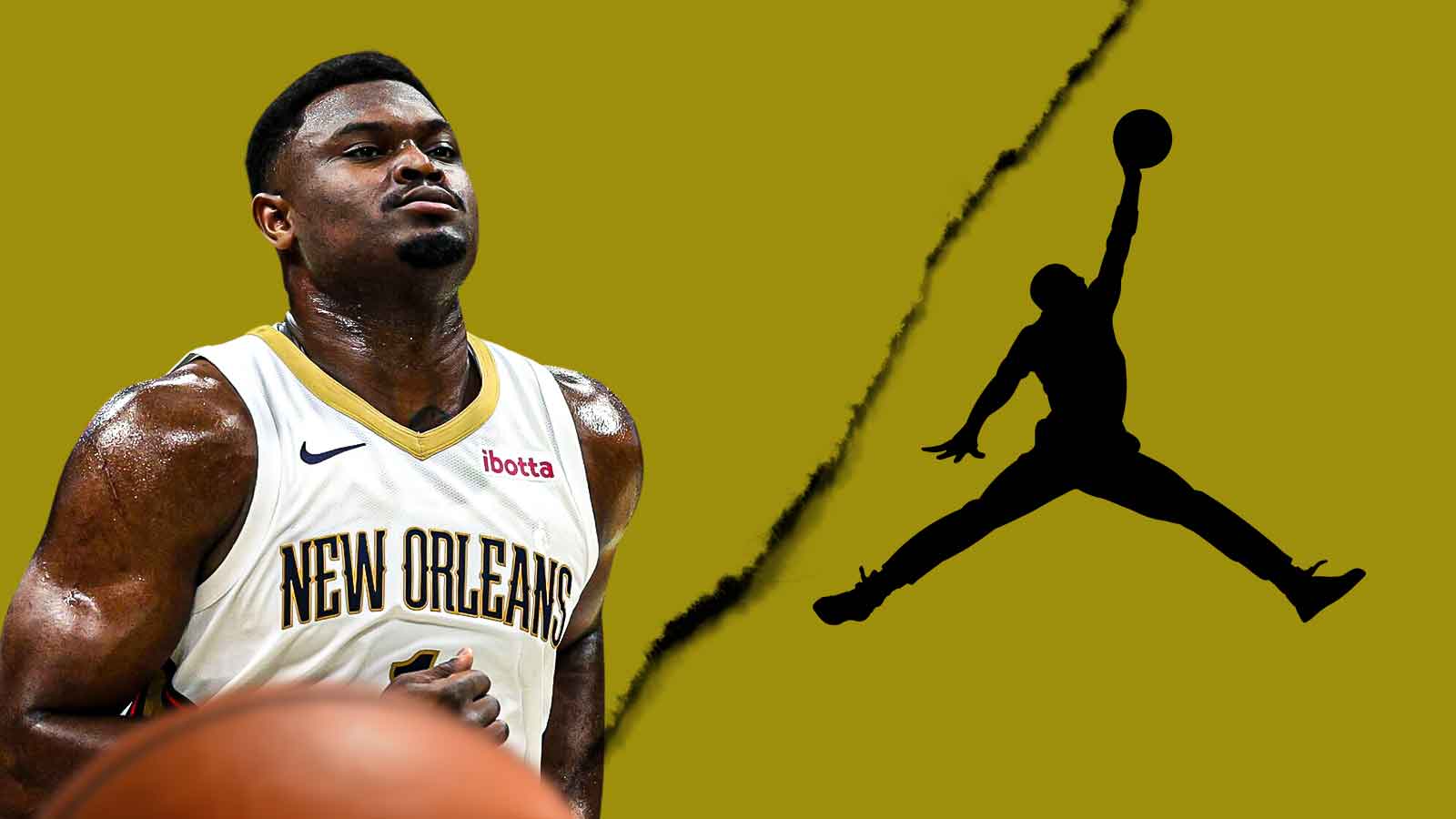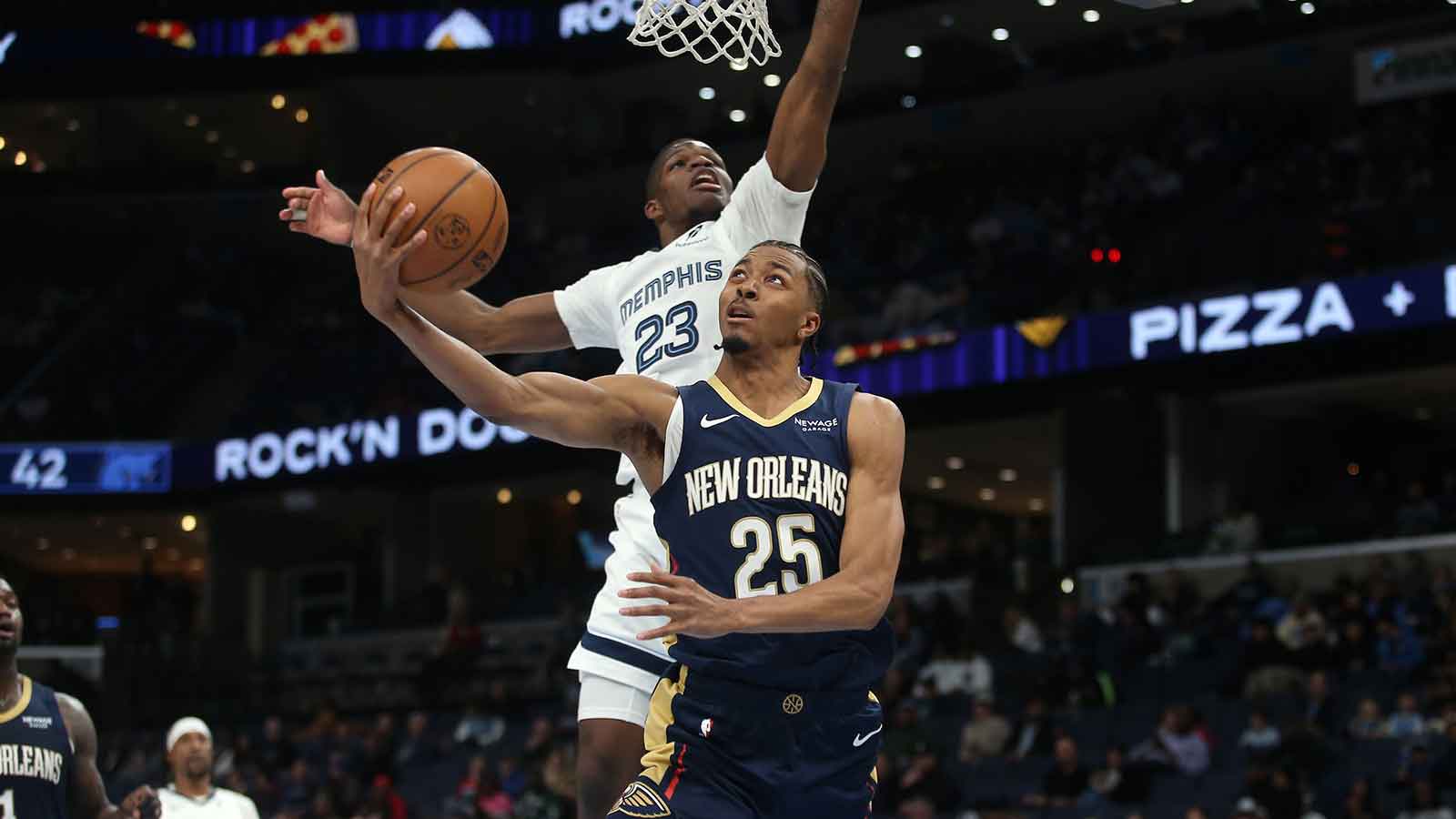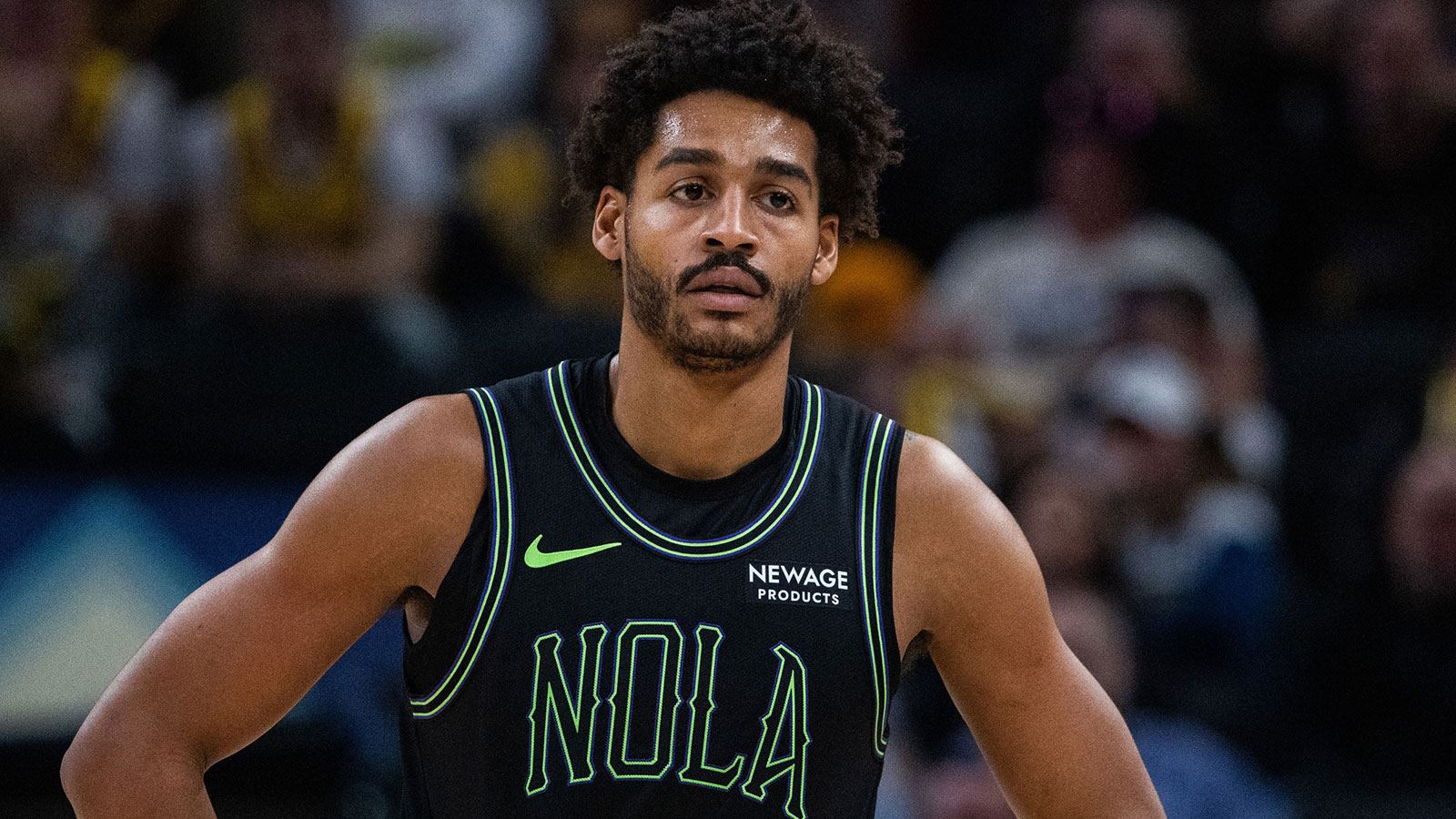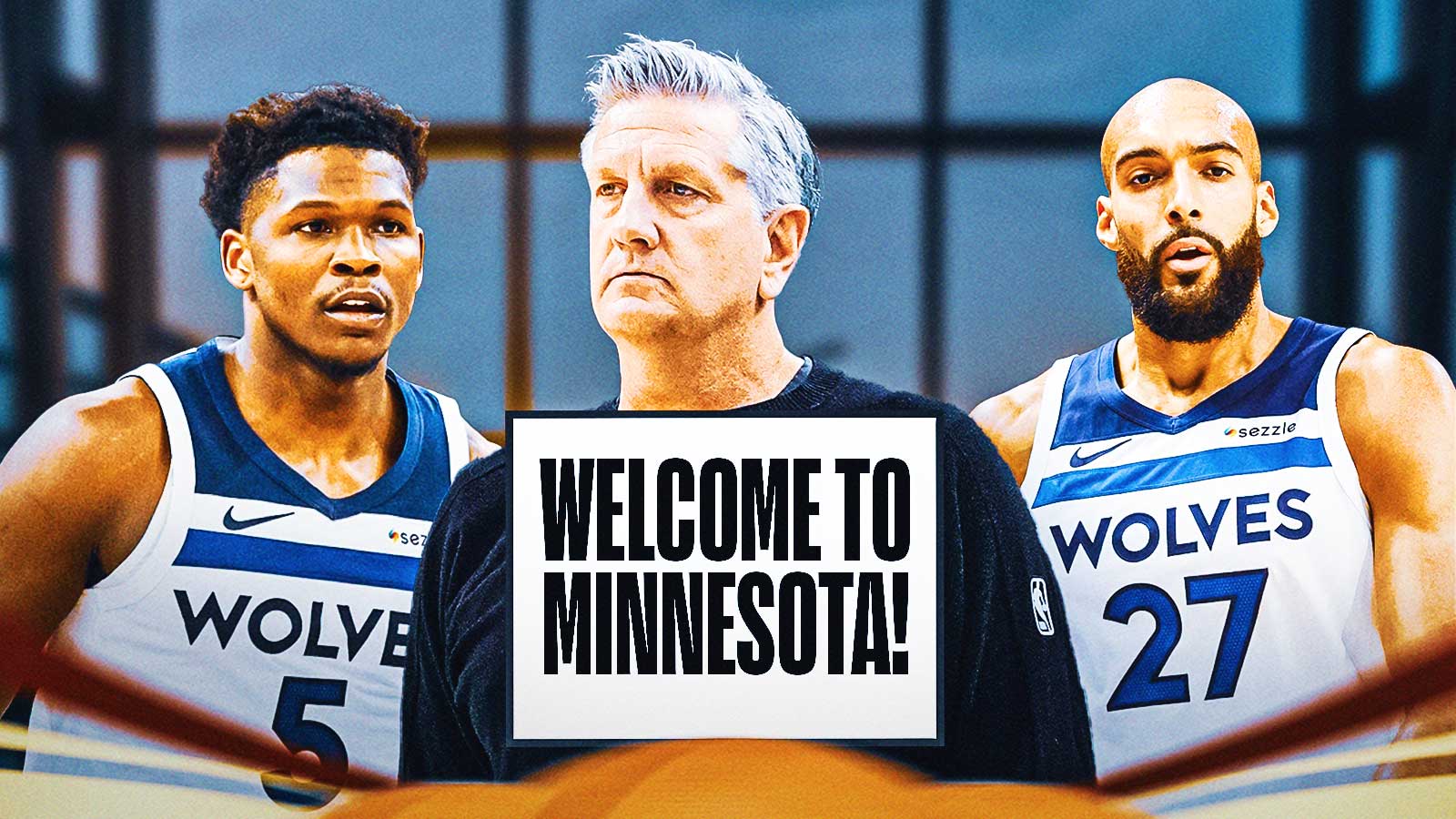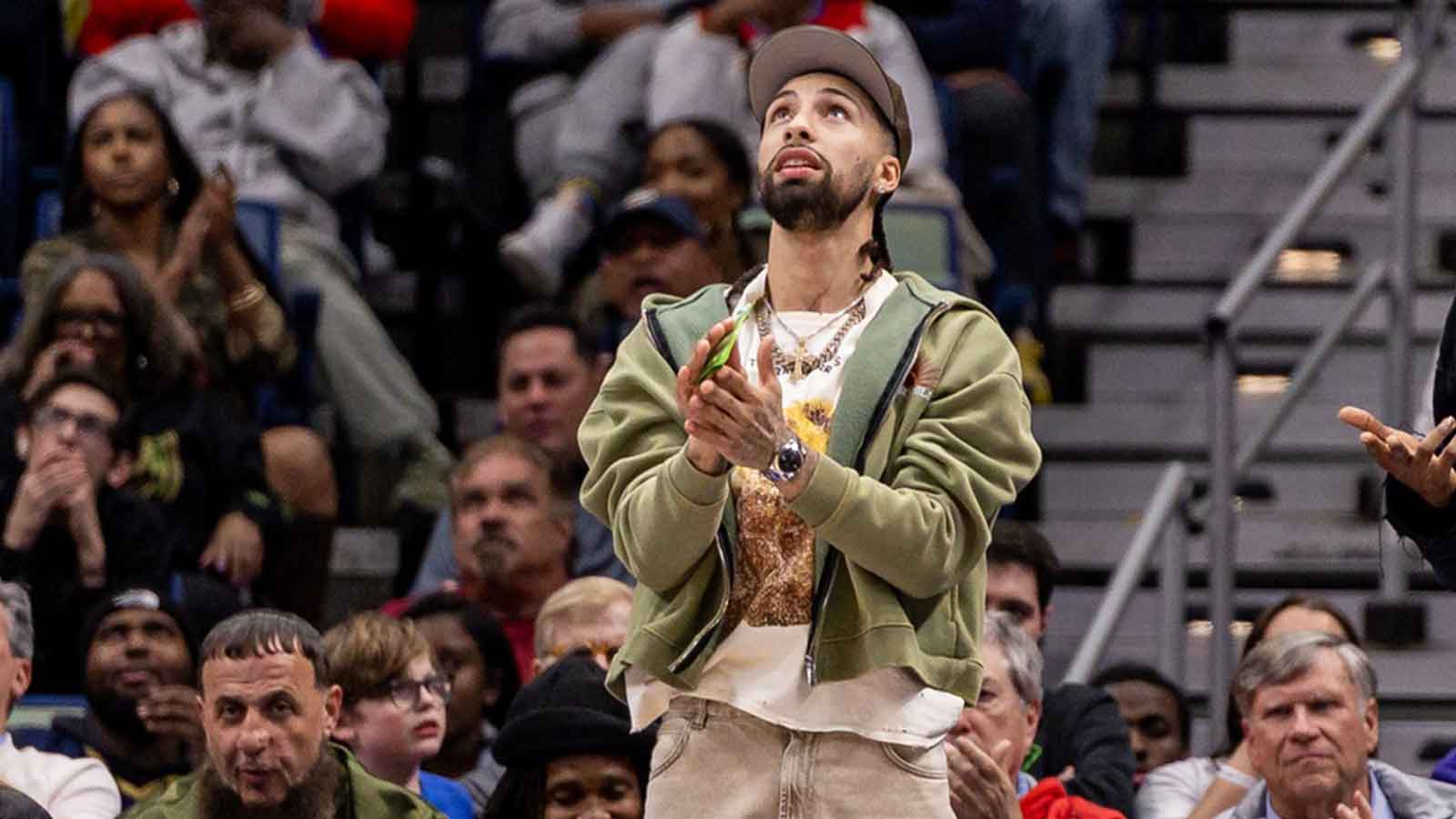The New Orleans Hornets/Pelicans franchise hasn't exactly been a hotbed for blockbuster signings in free agency. That distinction is reserved for the big market teams, which was made crystal clear when Anthony Davis decided that he wanted a trade out of the team back in the 2018-19 season.
Nevertheless, the Pelicans franchise has still proven capable of attracting a few solid free agents or, at the very least, unearthing a few gems that other teams overlooked. Here are 10 of the best free agent signings in Pelicans franchise history, including their stint as the Hornets and their stay in Oklahoma City in the aftermath of Hurricane Katrina.
10. JJ Redick
In dire need of more spacing following a disappointing 2018-19 season, the Pelicans signed JJ Redick in free agency. Redick had played for contending teams to that point, and the Pelicans thought that bringing in his playoff smarts and elite shooting would help a team that recently just acquired Zion Williamson and Brandon Ingram achieve great things.
While the Pelicans did snap Redick's personal playoff streak, it wasn't for a lack of trying from the veteran. He tallied 15.3 points per game on a blazing hot 45.3 percent shooting from deep (3.0 makes on 6.6 attempts per game) during his first season with the team — a solid return relative to the contract (two years, $26.5 million) he signed with the team.
9. Morris Peterson
In need of a two-way two guard who could pair up well with Chris Paul in the backcourt, the Hornets signed Morris Peterson to a four-year, $23 million deal after a few solid years with the Toronto Raptors. Peterson may not have reached the heights he achieved with the Raptors while donning a Hornets uniform, but he was more than solid enough for what the team needed during the time.
During the 2007-08 season, a campaign in which the Hornets won 56 games and threatened to make it all the way to the Western Conference Finals, Peterson provided the team with spacing and some veteran smarts. In 12 postseason games, Peterson made 1.3 triples a night on a 47.1 percent clip.
However, what prevents Morris Peterson from placing higher on this list is the fact that he was unable to live up to his contract. He suffered through a plethora of injury woes which later prematurely derailed his career, and the Hornets mirrored this decline from their starting two-guard.
8. Jannero Pargo
Signed to be Chris Paul's backup, Jannero Pargo filled his role to a T during his two seasons with the Hornets. He was a steadying presence on the floor who functioned as an extension of the head coach on the basketball court, and he was capable of making some timely threes in his own right. During the 2008 playoffs, Pargo also played a huge role, sometimes suiting up alongside Paul to form a pesky, defensive backcourt.
In two seasons with the Hornets (162 games), Pargo averaged 8.6 points, 2.0 assists, and 0.6 steals on 37 percent shooting from deep — acceptable numbers for someone the team paid a total of $2.8 million for.
7. Naji Marshall
Back in the 2020-21 season, it was clear that the Pelicans were on an upward trajectory. They only needed Zion Williamson and Brandon Ingram to remain healthy, and a future of contention was certainly in the docket. But during that campaign, the team clearly wasn't of playoff quality just yet. Thus, there was opportunity for the team to, perhaps, unearth a diamond in the rough. That's exactly what they did with Naji Marshall.
Marshall, by April 2021, had begun to establish himself as a solid role player for the Pelicans. He did not exactly space the floor at a high level, but he was an active presence on the glass and he made a ton of impressive plays on the defensive end. The Pelicans needed someone to do the dirty work alongside Williamson and Ingram, and Marshall checked that box.
Now, Naji Marshall has come into his own as a capable playmaker, someone the Pelicans could run their offense through for a stretch without losing too much ground. And at 6'7, 220 lbs., Marshall has the prototypical size for a wing that should allow him to find a role on the team and in the league for years to come.
6. E'Twaun Moore
E'Twaun Moore is not a household name. Not too many casual fans are familiar with him. But Pelicans fans sure are. One of the team's hauls in the cap spike of 2016, Moore proved to be worth every dollar of the four-year, $34 million deal he signed.
Moore, despite being undersized at 6'3, was more than serviceable for the Pelicans at the three, flourishing thanks in large part to his outstanding ability to space the floor. In four seasons with the team, Moore made 344 of his 852 attempts from three, good for 40.3 percent — a comfortably above-average figure.
During the 2017-18 season especially, E'Twaun Moore was one of the Pelicans' most important players for a significant period of time. The only drawback was that he needed to play above his size given the team's depth issues on the wing. This made him a walking mismatch for the opposition, helped only by Jrue Holiday's elite defense. But Moore did not earn his contract by virtue of being a high-level defender anyway, but rather to function as one of the team's best marksmen. And that, Moore did well.
5. Jose Alvarado
Four-year collegiate players don't generate much buzz in the NBA Draft, especially when they're undersized and not elite shooters. But Jose Alvarado is a competitor, someone who works hard to surpass everybody's expectations of him. So when Alvarado went undrafted in 2021, he worked his tail off to make it to the NBA. And he did, latching onto the Pelicans on a two-way deal in August 2021.
Alvarado, like most undrafted rookies, did not see any meaningful playing time to begin his career. But to begin the 2022 calendar year, he started to endear himself completely to head coach Willie Green with his tenacious brand of defense and his cunning techniques to gain an advantage on his opposition.
Jose Alvarado then earned the nickname “Grand Theft Alvarado” for his incredible ability to pick ballhandler's pockets from behind, sneaking his way near the bench or while out of bounds to surprise unsuspecting opponents. For someone the Pelicans picked up on a two-way deal and later on signed to an incredibly cheap four-year, $6.8 million with a team option for a stupidly low value of $1.99 million in 2024, it's difficult to get a much better return on investment than they have thus far.
4. Julius Randle
Losing DeMarcus Cousins to injury hurt the franchise in more ways than one, as it set the Pelicans back during the 2018-19 season and it eventually led to Anthony Davis forcing his way out of the team. However, the front office still tried to fill their Cousins-sized void by adding Julius Randle, a promising young player the Los Angeles Lakers had to let go following their bombshell LeBron James addition.
Randle, for his part, did his best, as he averaged a then-career best 21.4 points per game on a solid 60 true shooting percentage. But the Pelicans, again, failed to support their top-heavy core with some solid role players. Thus, the Pelicans scuffled to a 33-49 finish, with AD's trade shenanigans not helping matters one bit.
But for the $9 million the Pelicans paid, they could not have gotten a better piece for that season than Julius Randle.
3. Rajon Rondo
In 2017, the Pelicans' acquisition of Rajon Rondo didn't generate much fanfare. The Pelicans were coming off a 34-win season, and the team still had lackluster depth across multiple key positions. In fact, if there was a position of need for the Pelicans, it was on the wing, especially in the aftermath of Solomon Hill's underperformance.
However, a lot of pundits failed to recognize just how big of an impact Rondo would have on the twin-tower pairing of DeMarcus Cousins and Anthony Davis. Rondo was an exceptional playmaker, notching eight games of at least 15 or more assists for the franchise, and he played such a huge part in keeping the Pelicans afloat after Cousins' unfortunate injury.
It was in the 2018 NBA playoffs where Rajon Rondo truly shined in a Pelicans uniform. He was at the top of his game when they swept the hapless Portland Trail Blazers in the first round, allowing Anthony Davis to dominate the paint, Jrue Holiday to settle into more of a scoring role off the ball, and Nikola Mirotic to flourish from the perimeter. He averaged 12.2 dimes during that postseason run; if only DeMarcus Cousins had stayed healthy, perhaps they could have had a puncher's chance against the eventual champion Golden State Warriors in the second round of the postseason.
2. Ryan Anderson
In a move that still remains exceptionally perplexing, the Orlando Magic decided to give away Ryan Anderson, fresh off a season in which he averaged 16.1 points and 7.7 rebounds on 39.3 percent shooting from deep (on 6.2 attempts a night), to the Hornets in 2012 in a sign and trade. The league was beginning to value the stretch four more and more, so the Hornets' move for Anderson could not be construed as anything less than a coup.
Sure, he wasn't reliable at all as a defender, and the Hornets, which later on became the Pelicans in 2013, would acquire Omer Asik to allow Anthony Davis to play at his preferred position at the four, thereby pushing Anderson to the bench. But on his day, Anderson could swing games with his incredible ability to space the floor from game-breaking range, and his understated ability to contribute on the backboards.
In four games with the Hornets/Pelicans (230 games), Ryan Anderson averaged 16.1 points and 5.9 rebounds. Those numbers aren't too shabby, especially when taking into account the contract he signed (four years, $36 million — a fair price, even back before the salary cap exploded into the astronomical numbers we see nowadays).
1. Peja Stojakovic
In the mid-2000s, the Hornets began coming into its own, with superstar Chris Paul leading the way amid his emergence as one of the best point guards in the NBA. Paul, in just his rookie season, helped the Hornets win 20 additional games from their terrible effort in the 2004-05 campaign. So with the right pieces around the Paul, David West, and Tyson Chandler core, it seemed like a mere inevitability for the Hornets to become a strong playoff contender in the stacked Western Conference.
Enter Peja Stojakovic.
The Hornets acquired Stojakovic in a sign-and-trade with the Indiana Pacers, inking him to a five-year, $64 million deal in the process — huge money, especially for its time. But it was well worth it, especially in his second season with the team.
Stojakovic, after an injury-riddled debut season with the Hornets, stepped up as the sniper and secondary scorer Chris Paul needed, leading the team to a franchise-best 56-win output. During that fateful 2007-08 season, Stojakovic and Morris Peterson spaced the floor for Paul and West, helping the team to come within a win away from the Western Conference Finals.
Stojakovic's Hornets tenure did not end of the best of notes, as he found himself dealt away to the Raptors in 2010 after a gradual decline in the subsequent seasons. But that could not have turned out better for him, as he later latched onto the Dallas Mavericks, the team that would win the title in 2011.

